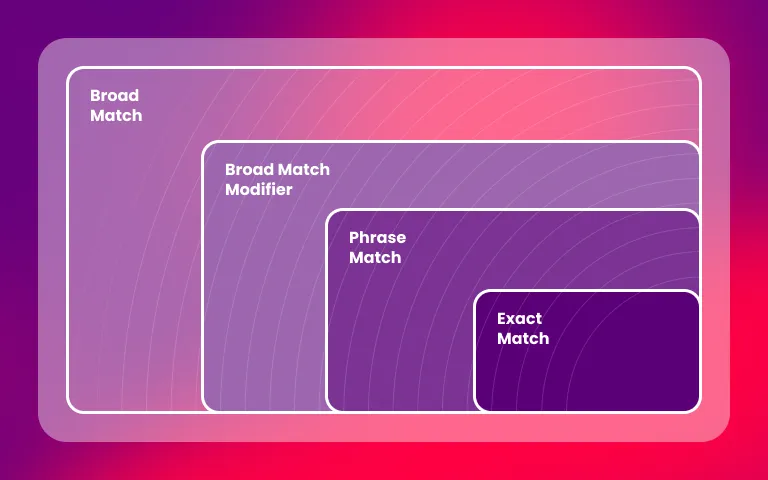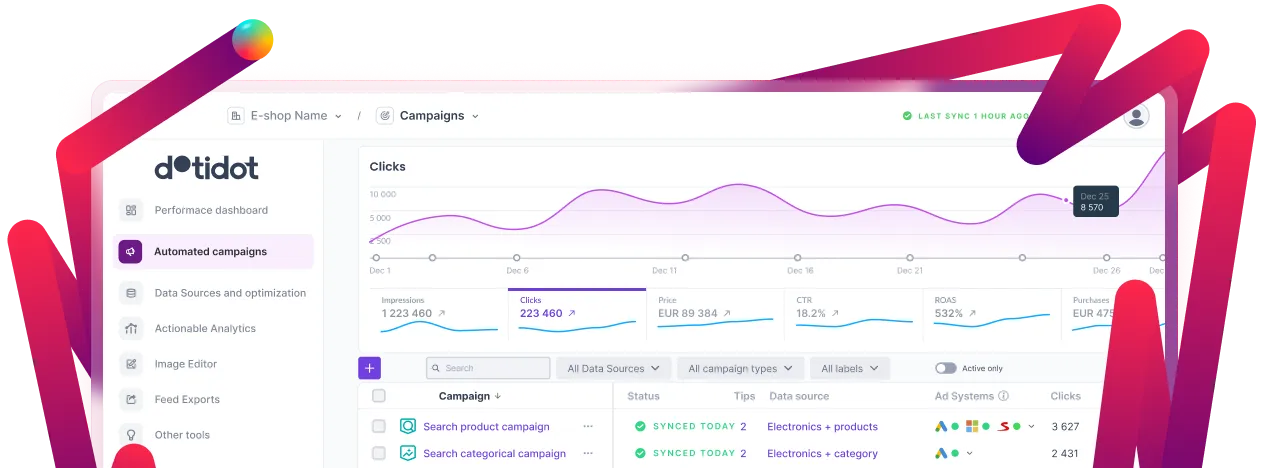Book a call with us







Keyword match types are important for deciding when your ads appear in search results. They range from broad to exact, allowing advertisers to determine how closely a user's search query must match their chosen keywords. This helps in targeting the right audience more effectively.

This type allows your ad to show for searches that include misspellings, synonyms, related searches, and other relevant variations. It offers the widest reach, capturing a large audience with diverse search terms.
Search query: "coffee maker"
Keywords that trigger ad: "coffee maker," "coffee machine," "best coffee brewers," "coffee making equipment," "coffee makers for home"
The good: Wide reach, can discover new keywords
The bad: It can easily trigger ads for irrelevant keywords
Phrase match type triggers your ad when a user’s search query includes the exact phrase or a close variation of the exact phrase, with additional words before or after. It provides a balance between reach and precision.
Search query: "single serve coffee maker"
Keywords that trigger ad: "single serve coffee maker," "best single serve coffee maker," "single serve coffee maker reviews," "cheap single serve coffee maker"
The good: Reduces irrelevant clicks
The bad: May miss some relevant searches
In 2021, Google retired the modified broad match type and integrated its functionality into phrase match. This change means that phrase match keywords now match to a broader range of queries, capturing more search variations than before.

This adjustment aims to simplify the keyword matching process while enhancing the relevance of ad targeting. According to Google, the updated phrase match type provides more precise matching than the old modified broad match, improving campaign performance. It's important to regularly monitor and update your keyword lists to ensure they align with these changes and optimize your ad reach.
Here are some examples provided by Google:
Broad match modifier keyword -> Queries that will NO longer match after the update
+resume +services -> what are some customer service skills to put on a resume
+best +sneakers -> best prices on sneakers for toddler
+used +printers -> companies that used daisy wheel printers
Phrase match keyword -> Queries that will match after the update
“holidays in zambia” -> holiday spots in zambia
“long sleeve dress” -> long sleeve lace dress
"womens boots” -> new womens size 37 boot
Exact match shows your ad only when the search query exactly matches your keyword or is a close variant of it, with no additional words. It offers the most precise targeting, ensuring your ad appears only for highly relevant searches.
Search query: "espresso coffee maker"
Keywords that trigger ad: "espresso coffee maker", "espresso coffee makers"
The good: Super-relevant clicks, you have the full control
The bad: Very limited reach, will miss opportunities
Negative keywords are crucial because they prevent your ad from appearing for specific search queries. For instance, if you're selling luxury watches, you might use "cheap" as a negative keyword to ensure your ads don't show up for users searching for inexpensive options. This refinement, combined with match types, allows you to target your audience more precisely.
We'll explore negative keywords and their effective usage in more detail later.
Choosing the right keyword match type for your campaigns can be challenging, as each type has its own advantages and disadvantages. But this strategy is clearly the winner of 2024:
Broad match is now the default match type, and it's particularly effective when combined with smart bidding strategies. As Google shifts towards AI-powered campaigns, broad match keywords are essential because they do not constrain the algorithms. Now combine it with Responsive Search Ads and you have created the smartest campaign you could have. This flexibility allows the AI to optimize your campaigns more effectively.
But check our Broad Match update article, where we explain this topic even more.
